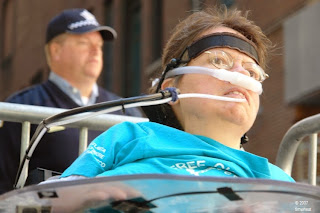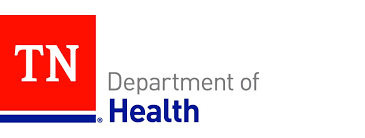In the face of the Delta variant, there is a critical course of action to take now: GET PEOPLE OUT!
By Bruce E. Darling
In March, the COVID Tracking Project at the Atlantic reported that about 8% of people who live in US long-term-care facilities had died of COVID-19 – nearly 1 in 12. However, in nursing facilities alone, the death toll jumped to nearly 1 in 10. As vaccinations began rolling out in nursing facilities, people expressed relief as the rate of institutional COVID deaths plummeted. With the sense that victory had been achieved, disability rights advocates began to pivot away from the current public health crisis and started talking about planning for “the next pandemic”. Unfortunately, “the next pandemic” may already be here.
Last week, the Washington Post reported that “The war has changed” and released internal documents from the Centers for Disease Control, reporting that the Delta variant is “so contagious that it acts almost like a different novel virus, leaping from target to target more swiftly than Ebola or the common cold.” The new strain is now reported to be about as transmissible as chickenpox – with each infected person infecting as many as eight or nine others, on average.
The CDC document also indicated that Delta variant vaccine breakthrough cases may be as transmissible as unvaccinated cases, meaning that vaccinated individuals may become infected and then infect others. The CDC document highlighted that “vaccine breakthrough cases will occur more frequently in congregate settings, and in groups at risk of primary vaccine failure (i.e., immune compromised, elderly, etc.).” And finally, the CDC identified that the Delta variant may cause more severe disease than Alpha or other previous strains of the virus.
The implications for institutionalized individuals, particularly elderly and Disabled individuals in nursing facilities, are significant. First, according to the CDC, as of the middle of July, 18.7% of nursing facility residents and 41.4% of nursing facility staff still have NOT been vaccinated for COVID. That means tens of thousands of nursing facility residents are sitting ducks for the virus. But that doesn’t mean other nursing facility residents are safe. As the virus mutates, breakthrough infections have become more frequent and although vaccination still reduces the risk of serious illness, nursing facility residents are most at risk for that outcome. Additionally, because nursing facility residents were among the first to be vaccinated, it is likely that any waning of immunity will first appear in this group. We probably have already started to see this in clusters of nursing facility deaths that have begun to crop up across the country.
In the internal document secured by the Washington Post, the CDC recommended that given increased transmissibility, lower vaccine effectiveness, and current vaccine coverage, nonpharmaceutical interventions are needed to reduce transmission of the Delta variant. Most of these public health efforts will focus on preserving the health and safety of people in the community as a way to reduce the strain on healthcare systems, but such efforts – absent specific efforts to address the likely deaths in congregate settings are inherently ableist, particularly when demonstrated solutions exist to protect Disabled lives.
During the early months of the pandemic, research demonstrated that community integration of Disabled individuals reduced the spread and deaths from COVID-19.
Research published in JAMDA, the Journal of Post-Acute and Long-Term Care Medicine, compared the infection and death rates of people in Connecticut nursing facilities to those receiving services in the community and demonstrated that people receiving services in the community were 11 times less likely to get infected with COVID-19 and die than their nursing facility counterparts. Although people may assume that the COVID-19 deaths in nursing facilities and other institutions were unavoidable or exacerbated because people in institutions are “sick” and “frail,” the research told a different story. The researchers found that – after infection – the death rates in the community and in the nursing facilities were comparable which means the nursing facility residents were not, in fact, more “frail” than their peers in the community. In summarizing their findings, the researchers noted that “The main distinction between groups was their living situation. It is likely that living in the community, vs a congregate setting, accounts for the significantly lower infection rates.”
Public health efforts that ignore congregate settings are not just ableist, they are also racist. Incarcerated individuals – who are over represented by Black, Indigenous, and People of Color (BIPOC) – exposed to the coronavirus also died at a rate unparalleled in the general public. Criminal justice reform advocates pushed government to reduce the number of incarcerated people in order to protect the health of incarcerated individuals.

Successful efforts by criminal justice advocates were also effective public health measures that helped protect facility staff and surrounding communities because the failure to reduce the numbers of people in congregate settings also puts people in the community at risk. Although the higher infection and death rates among BIPOC and institutionalized individuals were often reported separately, advocates recognized that the outbreaks in both communities were interrelated. Because the vast majority of nursing facility staff working with residents are BIPOC, infections readily spread between the institutions and BIPOC communities, amplifying both outbreaks and killing BIPOC and institutionalized individuals at even greater rates.
In the face of the Delta variant (and other future variants), there is one critical thing that the Biden Administration needs to do to safeguard the lives of individuals in all congregate settings:
GET PEOPLE OUT!
For people with disabilities in institutional settings, the availability of community-based services has increased dramatically since Lois Curtis and Elaine Wilson took their fight for freedom all the way to the Supreme Court. Even so, Disabled individuals continue to be needlessly institutionalized. This was thoroughly documented in the 2013 Senate HELP Committee report, “Separate and Unequal: States Fail to Fulfill the Community Living Promise of the Americans with Disabilities Act” which called on Congress “to clarify and strengthen the law’s integration mandate in a manner that accelerates Olmstead implementation and clarifies that every individual who is eligible for LTSS under Medicaid has a federally protected right to a real choice in how they receive services and supports.”
The Biden Administration has limited its efforts addressing this issue by calling for increased funding for Home and Community Based Services (HCBS). Legislation has been put forward that would have the federal government entirely fund HCBS, however that legislation falls short in failing to ensure that elderly and Disabled individuals are no longer forced into institutional settings. For specific information, read the analysis from ADAPT.
Consequently, such efforts appear to be little more than a federal giveaway to providers who will provide the services and managed care companies that will manage the funds. The Biden proposals also focus on advancing the interests of the unions. By failing to give Disabled people the right to leave institutions, the Biden administration is protecting union jobs in the institutional settings. Efforts to expand HCBS seem more focused on advancing the interests of unions which organize in this sector – even when such efforts undermine the independence and freedom of people with disabilities as we are seeing in California right now. The Biden Administration needs to acknowledge the limitations of the Olmstead decision and publicly urge Congress to enact civil rights legislation addressing the injustice of unwanted institutionalization.

We cannot wait for Congress to take action; immediate action is needed. Using the full authority of the Centers for Medicare and Medicaid Services (CMS), the Biden Administration must ensure that states utilize the funds made available by Congress in response to the pandemic to support community integration programs and Home and Community Based Services which allow people to leave the institutions and support others in avoiding institutional placement.
Instead of ensuring that elderly and Disabled people can leave dangerous institutions, CMS has been giving states far too much latitude in how they use these funds. In one particularly egregious example, New York State is proposing to use the enhanced HCBS FMAP for worker retention in nursing facilities (see page 12) while refusing to raise the wages of personal care aides and consumer-directed personal assistants – even temporarily – in spite of the fact that such workers earn LESS than fast food workers in our state!
Additionally, Federal Emergency Management Agency (FEMA) funds should be made available to states to support efforts that allow nursing facility residents to leave the institution during the “pandemic emergency period” by providing transition support and – if necessary – supplemental personal assistance services and emergency housing. CDR attempted to work with Monroe County to do this early in the pandemic, but without federal or state support, the project went nowhere.
The time to act is now! Whether there is another new and even more virulent variant or immunity from the current vaccines wanes, we cannot wait to take action until residents in nursing facilities and other congregate settings begin dying. By then, as we saw during the early stages of the pandemic, any meaningful response will be too late to prevent needless deaths.
AND KEEP PEOPLE OUT!
Advocates for criminal justice reform effectively made the case for reducing the population of jails and prisons and have pressured the Biden administration to revoke a Trump-era Justice Department memo which said inmates whose sentences lasted beyond the “pandemic emergency period” would have to go back to prison. Unfortunately, the Biden administration has determined that thousands of individuals in federal prisons who were released to home confinement to reduce the risk of spreading COVID-19 will be required to return to prison after the pandemic’s official state of emergency ends.
President Biden – himself – has the power to address this. The President should use the power of clemency to commute the sentences of people living in home confinement. In fact, twenty organizations, including the American Civil Liberties Union, have written the Biden administration and urged them not to recall inmates from home confinement when the emergency ends. In part, their letter reads:
“President Biden, we ask that you use your power of clemency to commute the sentences of people living in home confinement due to the CARES Act and prevent this impending crisis. We ask that you issue an order that contains a presumption that all people in home confinement under the CARES Act will have their sentences commuted, unless the Bureau of Prisons can prove an articulable and current threat of violent harm.”
The disregard for these lives is appalling, but not surprising. Aside from being at greater risk of dying from COVID-19, incarcerated individuals and institutionalized elderly or disabled individuals have much more in common. Neither is represented in the main dataset of the US census, and both are seen as less-than-human. As we struggle to come out of the pandemic, we should not strive for getting back to what was “normal”, we should do better.
And to get us there we need a President who will lead us.











